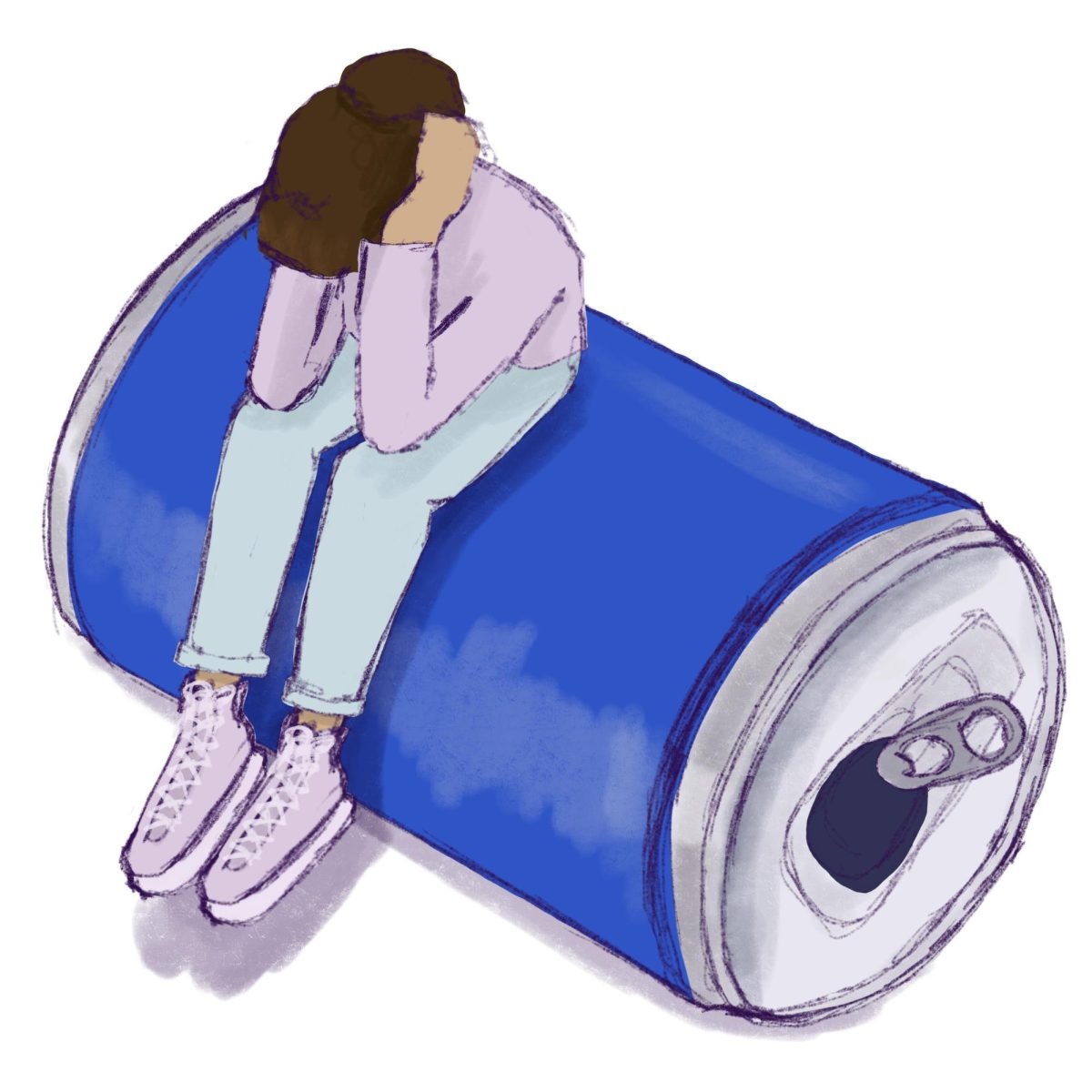Never before have I heard a term that captures a feeling better than “hangxiety.” We often think about the physical symptoms of a hangover due to alcohol but leave out the uneasy emotions that can occur after a night of drinking. When I heard of hangxiety for the first time, I felt reassured that it wasn’t just me who felt this type of anxiety due to alcohol.
Hangxiety can feel different for everybody, but it often forces us to overanalyze our actions or makes us regret the decisions we made the night before. Waking up with a pit in your stomach and an overwhelming feeling of dread is often debilitating as you try to go about your day. It is also very confusing when you have a good time but are riddled with worry afterwards. These feelings can be intense, even though they are not always based on reality.
Alcohol creates chemical changes in your brain and can increase feelings of anxiety as it wears off. These feelings can become even more intense if you are already experiencing stress or drink a significant amount of alcohol. Avoiding large amounts of alcohol when you are already emotional is the best way to avoid hangxiety, but when it happens, it is essential to have strategies to help you overcome it.
As an already anxious person, alcohol can exacerbate my nervous feelings about social interactions significantly. It’s easy to feel like I acted strange or that others thought I wasn’t fun. I sometimes regret singing so loud at a party or oversharing with a friend. While these behaviors are very typical, a hangover can make you forget that everyone was having a good time and that no one likely noticed your behavior as much as you think they did.
Knowing how common these feelings are is incredibly helpful when trying to overcome my own alcohol-related anxiety. Confirmation that I am not alone is often the first step towards easing unwanted worry.
In college, binge drinking is normalized, and social situations often involve events with alcohol. There is often a social pressure to drink alcohol at parties and bars, and many times, if you want to socialize, there aren’t a lot of other non-drinking options available. Finding a balance is really important, and we should all make sure to spend time with others without the use of a “social lubricant.”
But how can you combat feelings of hangxiety after you choose to drink on a night out? It is more important to be compassionate with yourself and remember that we are our own worst critics. It is likely that everyone you were hanging out with enjoyed your company, and they might even have their own anxieties the morning after drinking.
Of course, drinking water and eating a good meal are great first steps to starting your day off right. If you aren’t feeling good physically, it is infinitely more difficult to feel good mentally. While this might not cure your anxiety, it’s important to treat your body well, and this can be the first step to regulating your negative emotions after an alcohol-filled night out.
Finding ways to distract yourself is helpful to alleviate bad feelings after drinking. I always like to spend time with those who love me to work towards moving on from the night before. Making plans with friends can help you feel more comfortable and navigate your feelings outside of your own head. Talking to people who can reassure you is always helpful, but it is also good to not dwell on the night or overthink your actions.
Getting enough sleep is also one of my most effective strategies to rid myself of stress, and a nap is sometimes all I need to calm down. But if I can’t, going on a walk is always another great way to calm down and ease my mind from worry. If you can find ways to stay productive, that positive reinforcement by getting things done is also helpful in feeling better.
Reading a book or watching a funny movie is another great way to destress after a night of drinking. Focusing on something else can help you stop dwelling on memories of the night before, and a good story can help make you smile if you are feeling emotional.
The most important thing to remember is that you aren’t alone, and being harsh on yourself can only make things worse. Hangxiety is normal, but it doesn’t have to consume you if you allow yourself kindness in the morning after.
Delaney Rauscher Adams has not yet mastered the cure for hangxiety. Reach out to her at [email protected].


